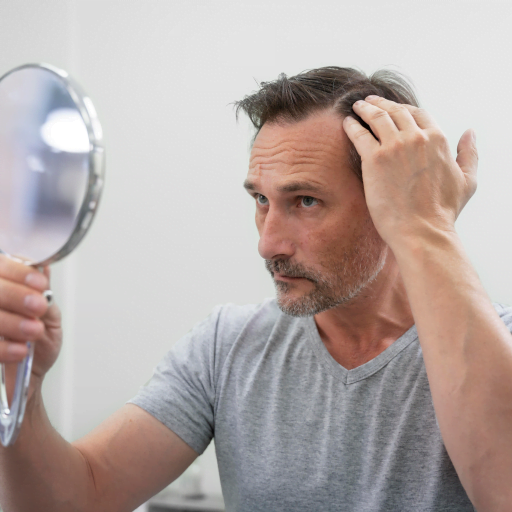Hair Loss Causes
Conveniently located to serve the Northern Virginia, Maryland and Washington D.C. metro areas.

Conveniently located to serve the Northern Virginia, Maryland and Washington D.C. metro areas.

Hair loss occurs when new hair doesn’t grow in fast enough to replace the hair that the human scalp naturally sheds. Losing your hair can feel stressful. Today, our advanced hair restoration treatments can help you reclaim the hair you’ve lost and support you so that you can keep your existing hair.
At The Hair Transplant Center – Virginia, we deliver hair restoration treatments to offer you peace of mind when it comes to your hair loss concerns. We offer hair loss treatment options that factor in your lifestyle needs.
Male pattern baldness, also called androgenetic alopecia, is the most familiar type of hair loss in men. Male pattern baldness typically results from genetic factors or a family history of baldness.
According to research, male pattern baldness appears to be closely connected to the male sex hormone called androgen. This hormone performs a variety of functions, which includes regulating hair growth. When a person experiences male pattern baldness, the hair growth cycle wanes and hair follicles tend to shrink, which means now having shorter, finer strands of hair. Eventually, the growth cycle for each hair follicle ceases, and that person’s hair doesn’t regrow.
To determine what’s causing your hair loss, you should consult a hair transplant doctor. At The Hair Transplant Center – Virginia, a hair transplant specialist can sit down with you to discuss your hair loss troubles and determine a potential solution for you. Rejuvenate your hair with hair loss treatments delivered at The Hair Transplant Center – Virginia. Contact us today to schedule your initial consultation.